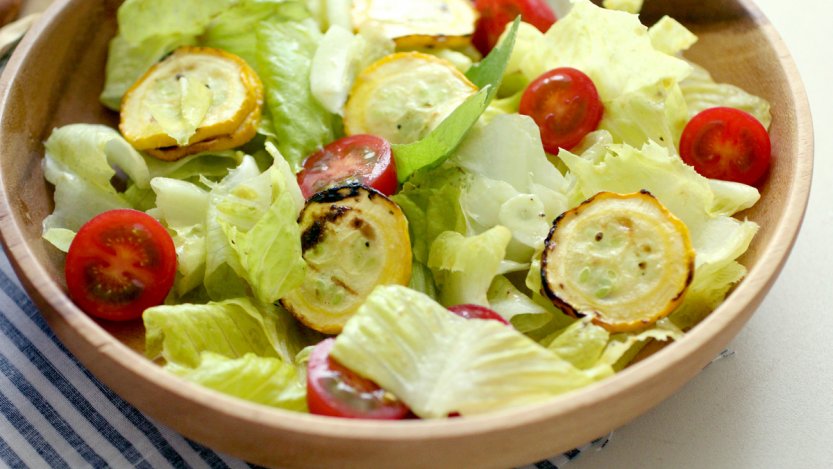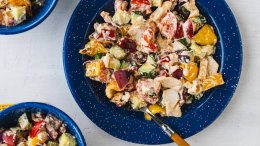Nowadays, everything can be shamed. Fat shaming, skinny shaming, slut shaming; you name it, you can shame it. The new kid on the block is diet shaming. As the name implies, diet shaming involves discrediting or degrading someone because they choose to eat a certain way. This encompasses everything from dietary restrictions (self imposed or otherwise), to something as seemingly insignificant as judging that person who helps themselves to a second slice of chocolate cake when you think they shouldn’t. To an extent, the latter also falls under fat shaming. So, for this story, let’s focus on the former; shaming those who choose or are forced to adhere to specific dietary restrictions.
To understand why diet shaming exists, let’s look at why we label our dietary choices in the first place. So you don’t eat meat, do you need to be called a vegetarian? Understandably, there are many cases in which that label is necessary for health and safety reasons, such as allergies and actual dietary restrictions, but most of the time, I end up wondering why we can’t just eat what we want to eat without having our choices pigeonholed into a specific category.
There are many reasons why labels predominate, but when it comes to our eating habits, and thus diet shaming, there are two that stand out: organization and belongingness.
We love to label things, food-related and otherwise, because it helps us make sense of the world around us. Labels are also attached to stereotypes that allow us to know what to expect in a given situation. The issue with this is that stereotypes are not always positive. When I say, “vegan”, what do you think of? Hippy? Tree hugger? Holier-than-thou, “stop trying to push your views down my throat” annoyance (sidenote: I feel as though I can say these things as someone who has been on the other end of such accusations)? Clearly, we cannot apply the stereotype to everyone who chooses not to consume animal products. However, we still use them to navigate our lives, lest we find ourselves in the company of an unidentified vegan on the warpath.
I think the second reason we rely so heavily on labels when it comes to our diets, is to foster a sense of belongingness. As humans, we’re social creatures who live and thrive in groups. Much like supporting sports teams, belonging to a group is accompanied by a sense of pride and it makes you want to do good by the others in the group. Identifying with a particular label aids in promoting group cohesion because it gives a name to what you are doing, and thus helps distinguish you from others.
So, why do we have to discriminate against those of certain labels? This is where implicit personality theories likely play a role, the idea that certain outward behaviours are associated with corresponding inward personality characteristics. For example, you would assume that someone who often smiles is generally pretty happy and kind. With eating, this is the concept that consuming, or choosing not to consume specific foods is reflective of an innate disposition or moral flaw of some sort.
As with everything else, all it takes is one person to ruin it for everyone. It’s the classic “celiac,” who just doesn’t eat carbs because they’re on a diet. They’re not actually a celiac but they vilify the reputation of those who are. The more of those you encounter, the more salient your negative attitude towards them, and all celiacs, becomes. Then the next time you meet someone who mentions that they’re a celiac, you probably employ a memory retrieval strategy called the availability heuristic. (Essentially, this means that you use a shortcut to decide what something, or someone is going to be like based on the availability of past examples.) And then you diet-shame because you apply your negative experiences to everyone who identifies with that particular label, even if they don’t fit the stereotype. What’s worse is that you will also likely have the tendency to search out information that confirms your beliefs, which is known as confirmation bias. It then becomes increasingly difficult to alter your views because whether you know it or not, you’re only looking for evidence that supports them.
Diet shaming, much like fat shaming and skinny shaming, is also likely a reflection of personal insecurities. Dietary habits are inextricably linked to weight, health, lifestyle, and the like, so if you’re not happy with yourself in these areas, shaming could be a response to jealousy towards someone who has been able to achieve something you haven’t. Alternatively, you might try to defend your point of view by explaining how other ones are wrong. It may seem counter-intuitive, but diet shaming might be a way of intimidating or embarrassing others in order to present yourself and your choices in a better light.
What and how people eat is their choice, so what is there to get uptight about? So, you don’t eat bread? You don’t eat meat? Who cares? If it’s not harming other people or society at large, let’s move on and get over it. When did personal preference become so public? There are a lot more important, and frankly, more interesting conversation topics, than, “why are or aren’t you eating that?” If you want to ask such a question, then shame on you.













